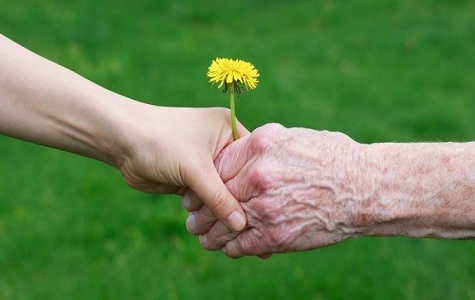The Gratitude Virus
As we approach Rosh Hashanah, here’s a reminder that our spiritual ancestors knew what neurobiologists only recently figured out.
Emotion is catchy – and a good thing, too.
In the 1980s, scientists discovered that the brain is wired with mirror neurons that fire when we perceive others’ emotions. These neurons mirror in us what we sense others experiencing, a signal so strong that we can feel others’ emotions as our own. (It’s also why yawning is contagious.)
This week’s Torah portion (Ki Tavo) is full of what we should do and not do, and the consequences of our choices – subjects fitting enough for pre-Rosh Hashanah introspection. The portion begins, however, with words reprinted in the Passover Haggadah about expressing gratitude for our blessings. Torah mandates, as perhaps Judaism’s first fixed liturgy, that these prescribed words of gratitude must be spoken aloud (Deut. 26:3).
Why? Enter mirror neurons.
Abraham Ibn Ezra, the great medieval mystic, taught that gratitude’s words must be spoken aloud – not just felt or pondered within – precisely so they are heard. Hearing words of gratitude, ibn Ezra wrote, teaches others because we emulate what we hear. Children, he taught, learn gratitude when they hear adults express gratitude. Adults, he wrote, learn to keep promises when they hear others’ gratitude for promises kept.
What we say matters. Others naturally mirror how we are: their mirror neurons fire, and so do ours. The more we speak gratitude, the more we prime the pump of a virtuous cycle of gratitude. The same goes for any words we speak – whether grateful and loving, or sharp and judgmental.
That’s how all of us are collectively responsible, especially at this time of year. It’s why we stand together at Rosh Hashanah. It’s why we confess together our missed marks. It’s why we ask together for forgiveness. It’s why we reach together for repair and healing. It’s why we feel together a whole so much greater than the sum of its parts. The sense of all of us together at Rosh Hashanah is potent not only because Rosh Hashanah is a great spiritual re-boot, but also because of the raw and poignant power of everyone subtly affecting everyone else.
Gratitude, love, contrition, forgiveness, hope – they’re all catchy viruses, and at this time of year we’re especially prone to them, thanks to mirror neurons. So go catch some good viruses, and be sure to spread some. Shanah tovah.
Rabbi David Evan Markus






 Evan J. Krame was ordained as a rabbi by the
Evan J. Krame was ordained as a rabbi by the